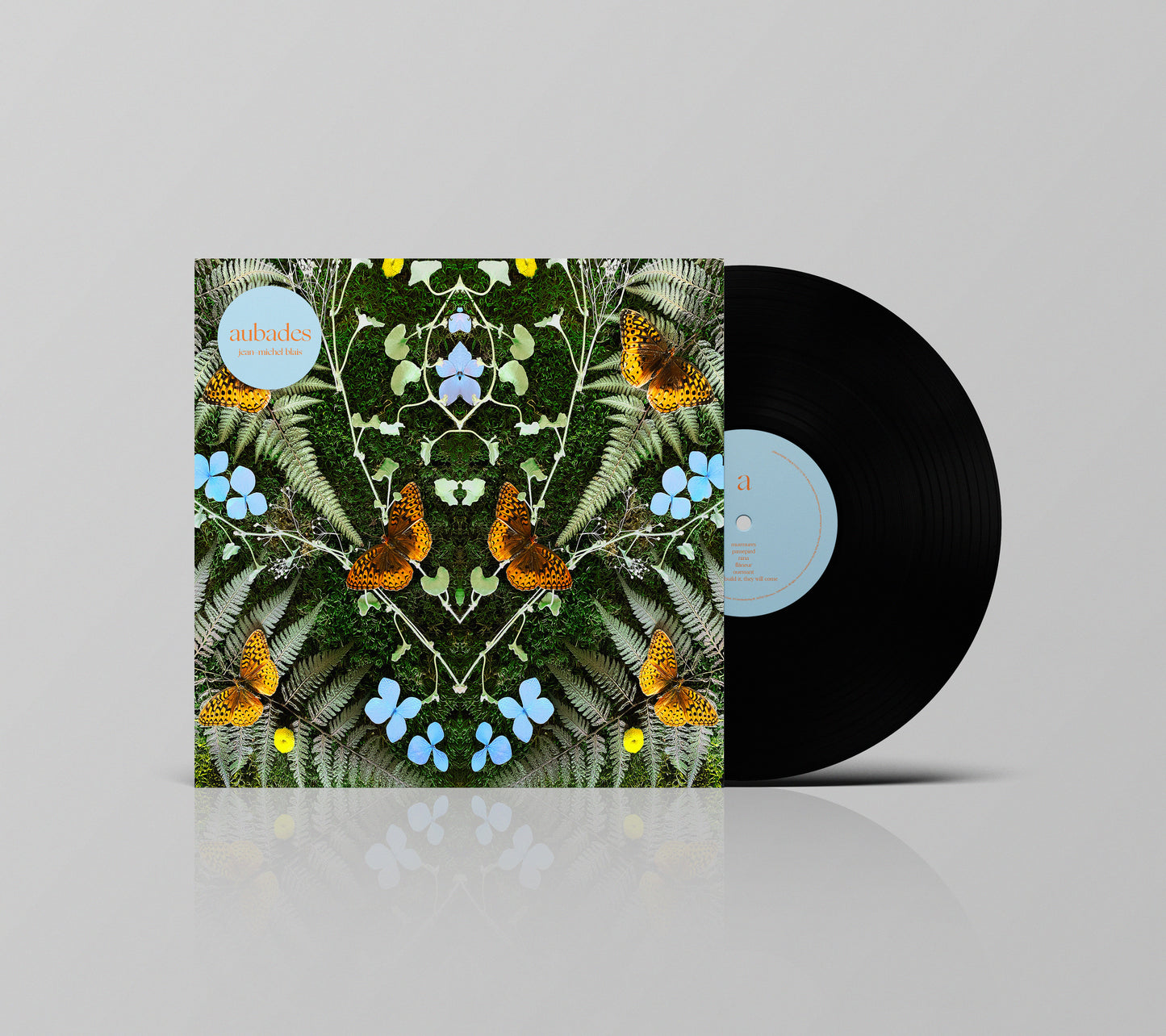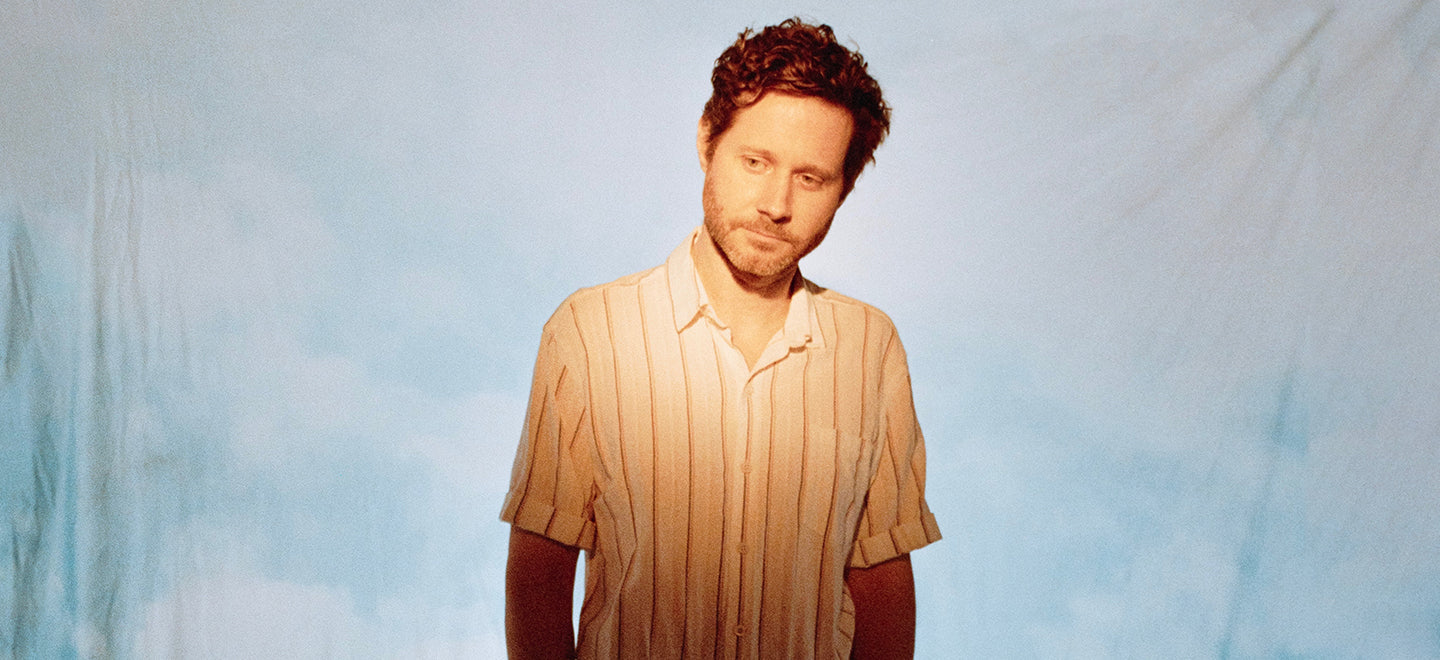1
/
of
2
Jean-Michel Blais - aubades
Jean-Michel Blais - aubades
Regular price
$35.00 CAD
Regular price
$35.00 CAD
Sale price
$35.00 CAD
Unit price
/
per
Shipping calculated at checkout.
Couldn't load pickup availability
- murmures
- passepied
- nina
- flâneur
- ouessant
- if you build it, they will come
- amour
- yanni
- absinthe
- carrousel
- doux
aubades, the new album from post-classical piano icon Jean-Michel Blais, marks the Montreal-born musician’s transition from pianist to composer, as he writes for an ensemble for the first time in his career. Written during the pandemic and following a breakup, Blais has used his distinctive musical voice to create a defiantly uplifting record with glistening instrumental textures and warm major tonalities. The album’s title refers to the “aubade”, a Middle Ages morning love song about lovers separating at daybreak, a dawn serenade.
Despite the difficult global and personal backdrop, Blais described the time writing this album as a “fruitful moment of creativity for me. We started having hares in the park, beautiful butterflies flying everywhere. It was a time of lots of blossoming, and also a moment when I blossomed from being a pianist into a composer.” Musical ideas captured in over 500 recorded piano improvisations were transformed by Blais into 11 compositions performed by a 12-person ensemble. During the composition process, Blais collaborated with Alex Weston, former music assistant to Philip Glass. The musicians were recorded with close-up microphones, creating a richly intimate atmosphere that captures the human behind each instrument, from the mechanics of the woodwind keys to the snap of a double bass string.
Despite the difficult global and personal backdrop, Blais described the time writing this album as a “fruitful moment of creativity for me. We started having hares in the park, beautiful butterflies flying everywhere. It was a time of lots of blossoming, and also a moment when I blossomed from being a pianist into a composer.” Musical ideas captured in over 500 recorded piano improvisations were transformed by Blais into 11 compositions performed by a 12-person ensemble. During the composition process, Blais collaborated with Alex Weston, former music assistant to Philip Glass. The musicians were recorded with close-up microphones, creating a richly intimate atmosphere that captures the human behind each instrument, from the mechanics of the woodwind keys to the snap of a double bass string.
////
aubades marque avec brio la transition de Jean-Michel Blais de pianiste à compositeur, alors qu'il écrit pour un ensemble pour la première fois de sa carrière. Le titre de l'album fait référence à l’« aubade », un terme médiéval désignant une pièce chantée lorsque des amoureux se séparent au crépuscule, une sérénade de l’aube. Blais s'est d’ailleurs inspiré de textures musicales de la Renaissance et du Moyen-Âge, ainsi que de l'éthique artistique social-démocrate du poète, designer et activiste anglais du XIXe siècle William Morris.
Bien que la dernière année ait pour plusieurs été difficile professionnellement et personnellement, heureusement pour Jean-Michel, ce fut aussi une période de catharsis et d’inspiration, avec comme résultat aubades, un nouvel album à la direction audacieuse. « Personne n’a échappé aux évènements de la dernière année, mais pour moi, ce moment a aussi été fructueux et créatif. Des lièvres sont apparus dans le parc et soudainement, de sublimes papillons volaient partout. C’était un moment d’épanouissement. Et c’est justement pendant cette période que je me suis aussi épanoui, passant de pianiste à compositeur. »
Quand le monde s’est refermé sur lui-même en mars 2020, l’ingéniosité improvisatrice de Jean-Michel Blais avait donné naissance à plus de 500 différentes improvisations qui se sont transformées en 11 compositions jouées sur aubades par un ensemble de 12 musiciens, dirigé par Nicolas Ellis, assistant de Yannick Nézet-Séguin à l'Orchestre Métropolitain, et récipiendaire du prix Goyer Mécénat Musica. Après avoir appris l’orchestration par lui-même grâce à un livre acheté en ligne, Jean-Michel a eu la chance de collaborer avec Alex Weston, originaire de Brooklyn, ex-assistant de Philip Glass pendant plus de sept ans.
Alors que Jean-Michel composait, différents paramètres venaient s’ajouter à sa décision d’écrire pour ensemble. « Avec cet album, je réagissais probablement à certaines tendances d’une musique dite néoclassique » estime-t-il.
Release date: February 4th, 2022
Share



More From Jean-Michel Blais

-
Jean-Michel Blais Sheet Music Collection
Regular priceRegular priceUnit price / per -
Jean-Michel Blais - Dans ma main sheet music book
Regular priceRegular priceUnit price / per -
Jean-Michel Blais - Il Sheet Music
Regular priceRegular priceUnit price / per -
Jean-Michel Blais - aubades Sheet Music Book
Regular priceRegular priceUnit price / per -
Jean-Michel Blais - Matthias & Maxime Sheet Music Book
Regular priceRegular priceUnit price / per -
Jean-Michel Blais - aubades
Regular priceRegular priceUnit price / per -
Jean-Michel Blais- Dans ma main
Regular priceRegular priceUnit price / per -
Jean-Michel Blais - Il (Deluxe Edition)
Regular priceRegular priceUnit price / per -
Jean-Michel Blais - Eviction Sessions
Regular priceRegular priceUnit price / per -
Jean-Michel Blais - Hypocrite - Cascades
Regular priceRegular priceUnit price / per -
Jean-Michel Blais - Matthias & Maxime
Regular priceRegular priceUnit price / per -
Jean-Michel Blais - sérénades
Regular priceRegular priceUnit price / per -
Jean-Michel Blais - Dans ma main deluxe
Regular priceRegular priceUnit price / per -
Jean-Michel Blais & CFCF - Cascades
Regular priceRegular priceUnit price / per -
Jean-Michel Blais - Dans ma main (remixes)
Regular priceRegular priceUnit price / per
1
/
of
4






















